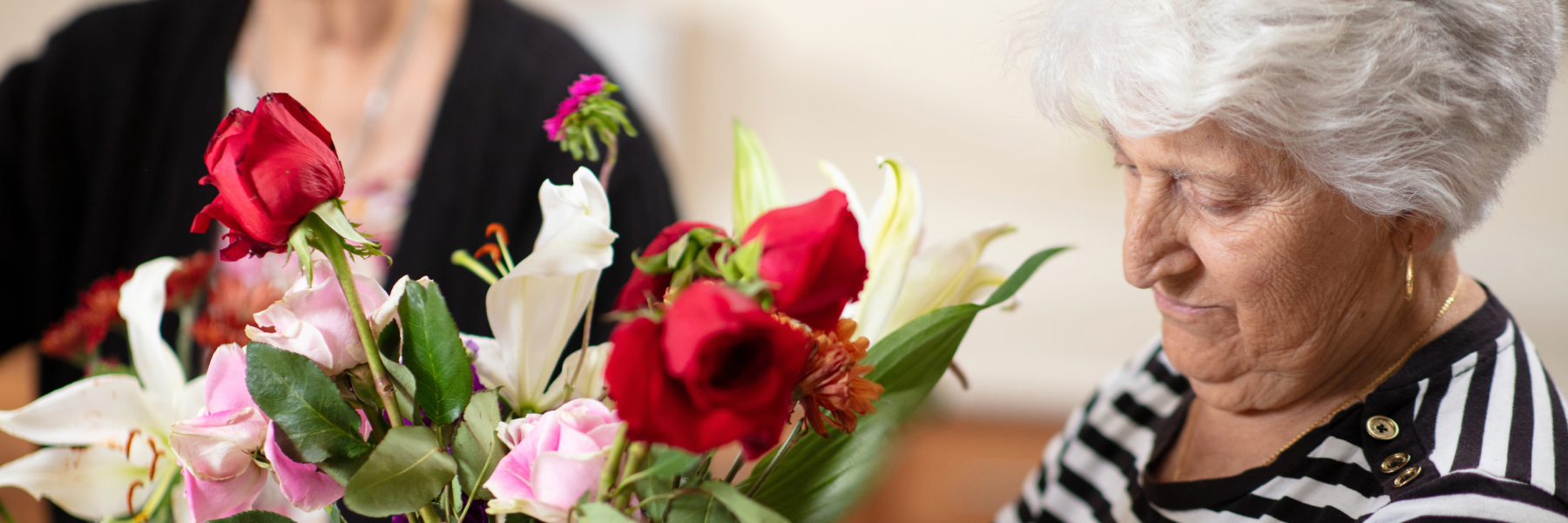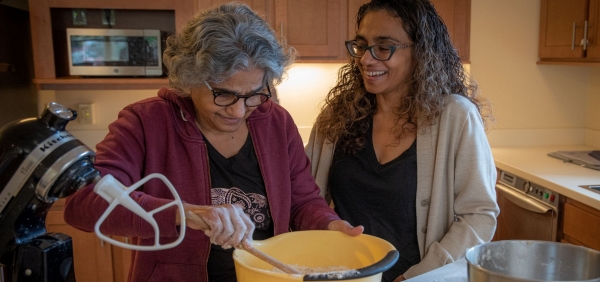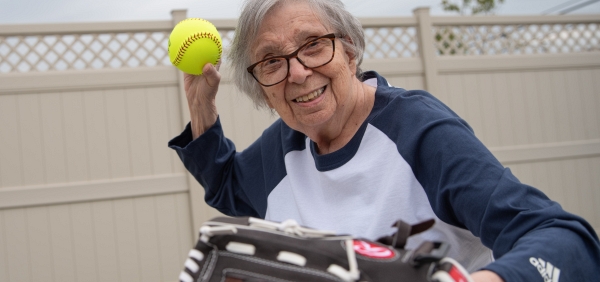Keeping Your Loved One Safe in Winter

The changing of the seasons can be a magical time, full of beauty and a sense of new beginnings. But when that shift is followed by shorter days and colder temperatures, there are special considerations to be made for your family member who is living with dementia. The following tips will help you keep your loved one safe this winter so you can focus on spending a wonderful holiday season together.
Dressing for the Weather
As people get older, they can lose some of their sensitivity to hot and cold. In addition, a person with Alzheimer’s or another form of dementia may have trouble dressing themselves appropriately in general. These two factors could lead to your loved one developing frostbite if not properly prepared for venturing outdoors. The first step in preventing something like this from happening is to pack away any warm-weather clothing. Instead, make sure your loved one’s drawers are stocked only with their winter clothes.
Avoiding Dehydration
When the weather is cold, people often don’t realize that they still sweat. Because your loved one living with dementia may have limited awareness of their own body, neither of you may notice how long it’s been since their last sip of liquid. And experts say that once a person starts to feel thirsty, it’s a sign they are already dehydrated. Whatever activity has you and your loved one outside and moving around – no matter how slow going – be sure to bring a water bottle and encourage your loved one to take a sip regularly.
Plan for Less Light
Another side effect of shortened days may be an earlier onset of sundowning in a loved one who is experiencing symptoms of this syndrome. Symptoms of sundowning include behavioral changes like confusion, anxiety, aggression, and ignoring directions as well as increased pacing or wandering. There can be a variety of triggers, but fading light is often a root cause, as darkness and shadows can be disorienting. In addition to taking note of your loved one’s normal triggers and finding ways to avoid them, there are other seasonal changes to work around. Start by closing the blinds and turning on inside lights earlier in the day, before the outdoor light begins to fade. This will help keep your loved one’s internal clock in check so they can keep up their normal routine and sleep schedule. It may also be helpful to add full-spectrum fluorescent lighting to the room where your loved one spends the most time.
Watch for Fire & Burn Hazards
If your loved one with dementia lives alone or spends any considerable amount of time without a caregiver, it’s important to be aware of fire and burn risks. Because of the loss of temperature sensitivity that can occur in those experiencing dementia, they run the risk of overheating or being burned by an electric blanket. Electric heaters can burn the skin if set too close to your loved one’s feet or legs. They are also at risk of being tipped over. Consider removing either of these items from your loved one’s home or locking them up when a caregiver isn’t around.
For more caregiver tips and supporting your loved one with dementia, visit the Artis Senior Living blog.



